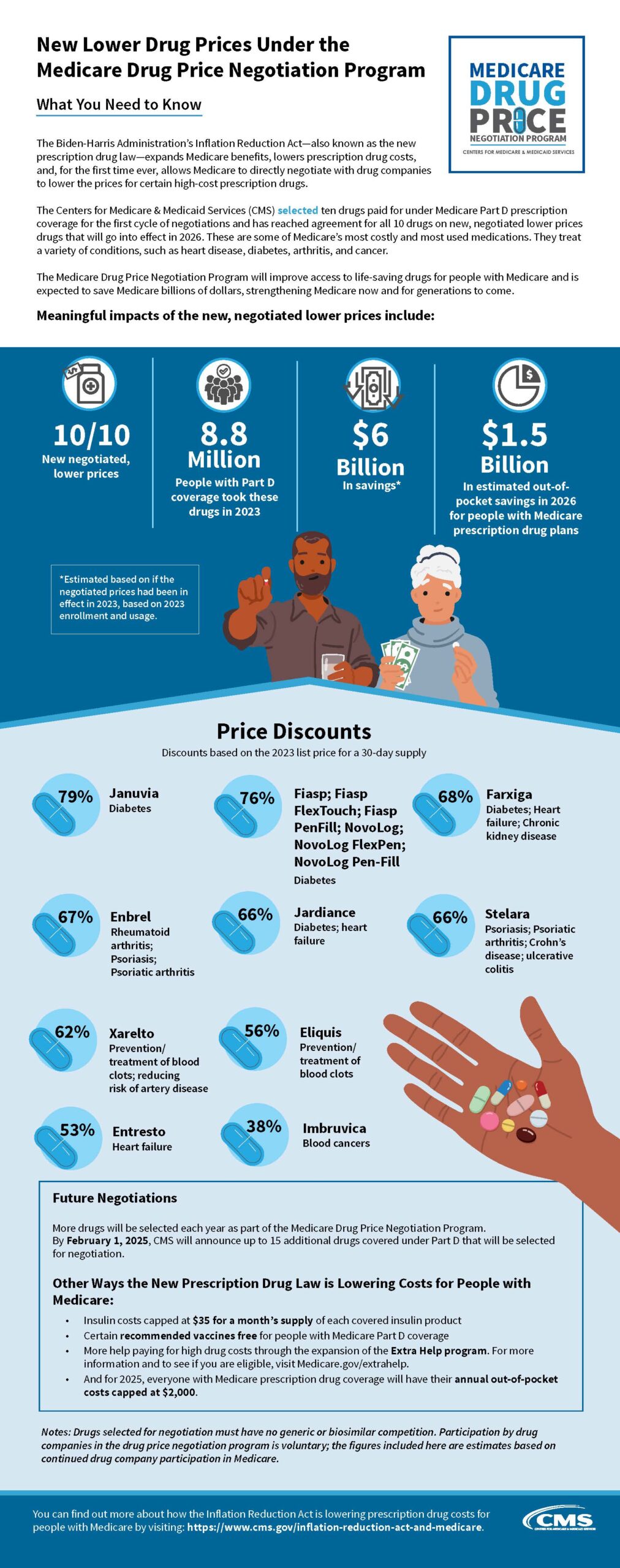August 16, 2024, marks the 2 year anniversary of the Inflation Reduction Act (IRA). One of the most talked about and written about policies of the current administration, The IRA has far reaching impacts. Whether they are positive or negative is a matter of perspective.


After the IRA was signed into law in 2022, health innovators, patient groups, economists and others raised concerns that the unintended consequences of the IRA would result in fewer treatments and cures in the pipeline and ultimately higher – not lower – overall healthcare costs.
On August 16, 2024, the White House posted the FACT SHEET: Two Years In, the Inflation Reduction Act is Lowering Costs for Millions of Americans, Tackling the Climate Crisis, and Creating Jobs outlining what has happened since this 274 page legislation was signed into law on August 16, 2022.
Like many complex pieces of public policy, there are some things that are very good and others that may have unintended consequences that keep the policy from having its intended benefit. In October of 2022, AZBio hosted The IRA is now law. What comes next?
In the 1-hour session, attendees learned about the provisions specific to patient out of pocket costs and also explored concerns about the unintended consequences of some of the policy provisions relative to the health innovation ecosystem and the impact on the future pipeline of treatments and cures that patients are waiting for.
Perspectives in 2024

BIO Statement On Selected Drugs in Medicare under Inflation Reduction Act
“While the Inflation Reduction Act puts a cap on senior’s out-of-pocket costs, it also contained some very damaging parts that will impede the development of newer and better medicines for all. Important aspects of the IRA are also damaging to the critical role of the United States and our allies to remain the centers of excellence in biotechnology worldwide. With today’s announcement, we see the start of unilateral government mandated price controls. This will inevitably lead the U.S. on a path to higher costs for patients and less access to innovative medicines.
“The lack of transparency and a scientific approach to decision-making throughout this process undermines the value that these medicines bring to patients in the U.S and around the globe. We are also just beginning to see the harm to patients caused by the unintended consequences of penalizing medicines made as pills. The IRA also includes a damaging provision that will curtail the development of medicines for multiple rare genetic diseases.
“At the same time, Congress and the administration must turn their full attention to health insurers and middlemen who profit by denying Medicare patients and others access to the medicines that their doctors prescribe. This is the source of high costs at the pharmacy and the denial of access to lifesaving treatments and cures. Delay and denial from health insurance companies equals suffering and death. This must be addressed, as well as correcting the most egregious parts of the IRA.”
“The administration is using the IRA’s price-setting scheme to drive political headlines, but patients will be disappointed when they find out what it means for them. There are no assurances patients will see lower out-of-pocket costs because the law did nothing to rein in abuses by insurance companies and PBMs who ultimately decide what medicines are covered and what patients pay at the pharmacy.
“As a result of the IRA, there are fewer Part D plans to choose from and premiums are going up. Meanwhile, insurers and PBMs are covering fewer medicines and say they intend to impose further coverage restrictions as the price-setting scheme is implemented. More than 3 million beneficiaries taking medicines with government-set prices will pay more in 2026.
“The IRA also fundamentally alters the incentives for medicine development. Companies are already changing their research programs as a result of the law, and experts predict this will result in fewer treatments for cancer, mental health, rare diseases and other conditions. Medicine development is a long and complex process, and the negative implications of these changes will not be fully realized for decades to come.
“The ironically named Inflation Reduction Act is a bad deal being forced on American patients: higher costs, more frustrating insurance denials and fewer treatments and cures for our loved ones.”
Additional background:
The IRA price setting process is anything but “negotiation.” Once a manufacturer’s medicine is selected for price setting, there are only two options if the manufacturer does not capitulate to the government and its unilaterally determined price:
- Pay a tax of up to 1,900% (not 95%) on the total sales revenue of the medicine selected for price setting. News coverage misreports the tax as an “up to a 95% tax.” To be sure, a 95% tax on all sales would be devastating, but the real tax is up to 1,900% due to the convoluted formula in the statute.
- Watch all their medicines get withdrawn from Medicare (Parts B and D) and Medicaid, not just the medicine selected for price-setting. Even if manufacturers were to consider this option, it’s not up to them; CMS gets to decide. A manufacturer-initiated withdrawal would take 11 to 23 months to take effect, during which period the manufacturer would be required to disclose proprietary information and “agree” with CMS’ actions.
About PhRMA
The Pharmaceutical Research and Manufacturers of America (PhRMA) represents the country’s leading innovative biopharmaceutical research companies, which are devoted to discovering and developing medicines that enable patients to live longer, healthier and more productive lives. Over the last decade, PhRMA member companies have more than doubled their annual investment in the search for new treatments and cures, including nearly $101 billion in 2022 alone.
